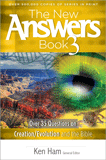The Creator in the Manger
In the true Christmas story, the Prince of Peace takes on human flesh, conquers sin and Satan by his death and resurrection, and reconciles sinful believers to the holy God.
The Christmas classic ballet The Nutcracker spins the tale of a wooden nutcracker whose fight against the evil Mouse King transforms him back to a prince. The true Christmas story is far more miraculous and magnificent: the Prince of Peace took on human flesh, conquered sin and Satan by his death and resurrection, and reconciles sinful believers to the holy God.
As the Son of God, this Prince has reigned in harmony with his Father from eternity past. The Bible begins with the truth of the Creator: “In the beginning, God created the heavens and the earth” (Genesis 1:1). The Gospel of John begins similarly and identifies the agent of Creation as the Son: “In the beginning was the Word, and the Word was with God, and the Word was God. He was in the beginning with God. All things were made through him, and without him was not any thing made that was made” (John 1:1–3).
At Christmas time, we celebrate the day that the eternal Creator entered his creation.
At Christmastime, we celebrate the day that the eternal Creator entered his creation. The Creator who stretched out the heavens was laid beneath them in a manger. The limitless Son of God took on human limitations. As a baby, Jesus depended on Joseph and Mary for care and nourishment. Yet the humility of his incarnation did not detract from the glory of his deity: “And the Word became flesh and dwelt among us, and we have seen his glory, glory as of the only Son from the Father, full of grace and truth” (John 1:14).
Although full of glory, the Lord Jesus was not welcomed, even from birth. The baby’s cradle was a manger because no proper room could be found. Lowly shepherds visited the newborn Savior. King Herod sought to kill Jesus by ordering the slaughter of the babies in Bethlehem. Creation neither knew nor received their Creator: “He was in the world, and the world was made through him, yet the world did not know him. He came to his own, and his own people did not receive him” (John 1:10–11).
The same rejection happens today as “Merry Christmas” is replaced with “Happy holidays,” and nativities are banned from public display. These outward changes are a sign of hearts that refuse Jesus. People hang Christmas lights yet hide their eyes from the “true light, which gives light to everyone” (John 1:9). Why? “And this is the judgment: the light has come into the world, and people loved the darkness rather than the light because their works were evil. For everyone who does wicked things hates the light and does not come to the light, lest his works should be exposed” (John 3:19–20).
The reason so many reject Jesus, the “light of the world” (John 8:12), is that they love the sin that Christ’s light exposes. Sinful mankind would rather cling to their independence, immorality, idolatry, irreverence, and indulgences than turn in repentant faith to Jesus as the only Savior from sin and Lord of life.
Many continue to reject the Prince of Peace, and the enemy, Satan, “the prince of the power of the air” (Ephesians 2:2), strives to blind men from the light: “The god of this world has blinded the minds of the unbelievers, to keep them from seeing the light of the gospel of the glory of Christ, who is the image of God” (2 Corinthians 4:4).
But there is hope. God the Father makes rescue missions into dark enemy territory: “He has delivered us from the domain of darkness and transferred us to the kingdom of his beloved Son, in whom we have redemption, the forgiveness of sins” (Colossians 1:13–14). Redemption means to free by paying a ransom. Christ gave his life as a ransom to the Father by dying in the sinner’s place (Matthew 20:28; 1 Peter 2:24).
The Son willingly gave himself to be laid in the manger and later laid on the cross.
The Son willingly gave himself to be laid in the manger and later laid on the cross. In his book God’s Gift of Christmas, John MacArthur writes, “Those soft little hands, fashioned by the Holy Spirit in Mary’s womb, were made so that nails might be driven through them. Those baby feet, pink and unable to walk, would one day walk up a dusty hill to be nailed to a cross. . . . Jesus was born to die.” Yes, Jesus was born to die for sin and rise in victory.
The sinner who receives Jesus becomes a child of God: “But to all who did receive him, who believed in his name, he gave the right to become children of God, who were born, not of blood nor of the will of the flesh nor of the will of man, but of God” (John 1:12–13). Because of Jesus’ birth into this world for redemption, the sinner can be born into the family of God. That’s reason to celebrate at Christmas and throughout the year!
Recommended Resources

Answers in Genesis is an apologetics ministry, dedicated to helping Christians defend their faith and proclaim the good news of Jesus Christ.
- Customer Service 800.778.3390
- © 2024 Answers in Genesis







